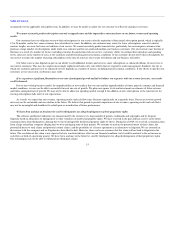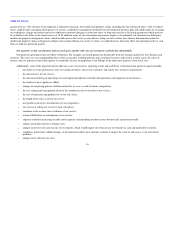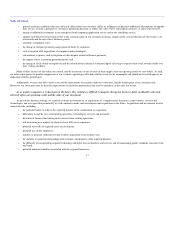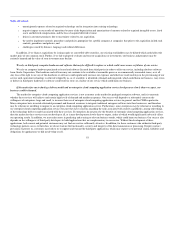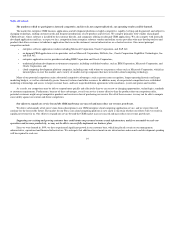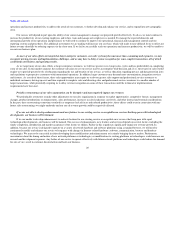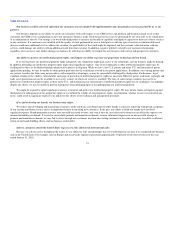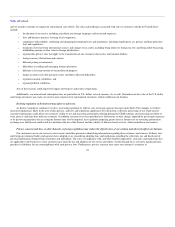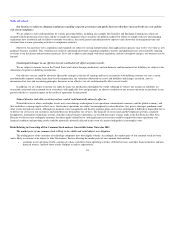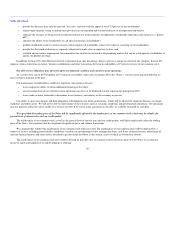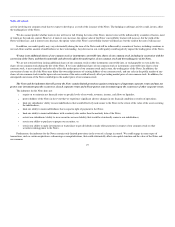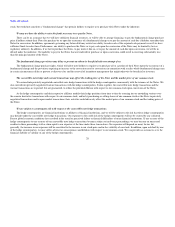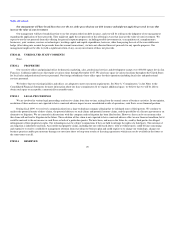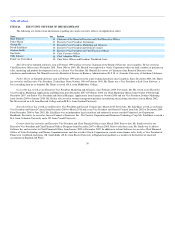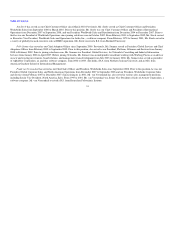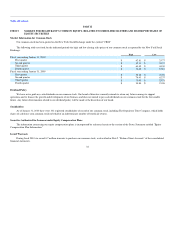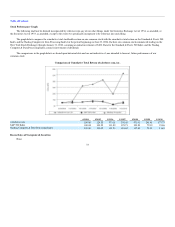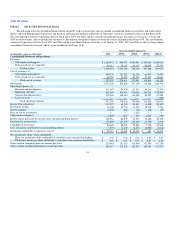Salesforce.com 2009 Annual Report Download - page 28
Download and view the complete annual report
Please find page 28 of the 2009 Salesforce.com annual report below. You can navigate through the pages in the report by either clicking on the pages listed below, or by using the keyword search tool below to find specific information within the annual report.
Table of Contents
• forward looking guidance to industry and financial analysts related to future revenue and earnings per share;
• the net increases in the number of customers, either independently or as compared with published expectations of industry, financial or other
analysts that cover our company;
• changes in the estimates of our operating results or changes in recommendations by securities analysts that elect to follow our common stock;
• announcements of technological innovations, new services or service enhancements, strategic alliances or significant agreements by us or by our
competitors;
• announcements by us or by our competitors of mergers or other strategic acquisitions, or rumors of such transactions involving us or our
competitors;
• announcements of customer additions and customer cancellations or delays in customer purchases;
• recruitment or departure of key personnel;
• disruptions in our service due to computer hardware, software or network problems;
• the economy as a whole, market conditions in our industry, and the industries of our customers;
• trading activity by a limited number of stockholders who together beneficially own a majority of our outstanding common stock; and
• any other factors discussed herein.
In addition, if the market for technology stocks or the stock market in general experiences uneven investor confidence, the market price of our common
stock could decline for reasons unrelated to our business, operating results or financial condition. The market price of our common stock might also decline in
reaction to events that affect other companies within, or outside, our industry even if these events do not directly affect us. Some companies that have
experienced volatility in the trading price of their stock have been the subject of securities class action litigation. If we are subject of such litigation, it could
result in substantial costs and a diversion of management's attention and resources.
The concentration of our capital stock ownership with insiders will likely limit your ability to influence corporate matters.
Our executive officers, directors, and several stockholders and their affiliated entities together beneficially own a majority of our outstanding common
stock. As a result, these stockholders, if they act together or in a block, could have significant influence over most matters that require approval by our
stockholders, including the election of directors and approval of significant corporate transactions, even if other stockholders oppose them. This concentration
of ownership might also have the effect of delaying or preventing a change of control of our company that other stockholders may view as beneficial.
Provisions in our amended and restated certificate of incorporation and bylaws and Delaware law might discourage, delay or prevent a change of
control of our company or changes in our management and, therefore, depress the market price of our common stock.
Our amended and restated certificate of incorporation and bylaws contain provisions that could depress the market price of our common stock by acting
to discourage, delay or prevent a change in control of our company or changes in our management that the stockholders of our company may deem
advantageous. These provisions among other things:
• establish a classified board of directors so that not all members of our board are elected at one time;
• permit the board of directors to establish the number of directors;
25


